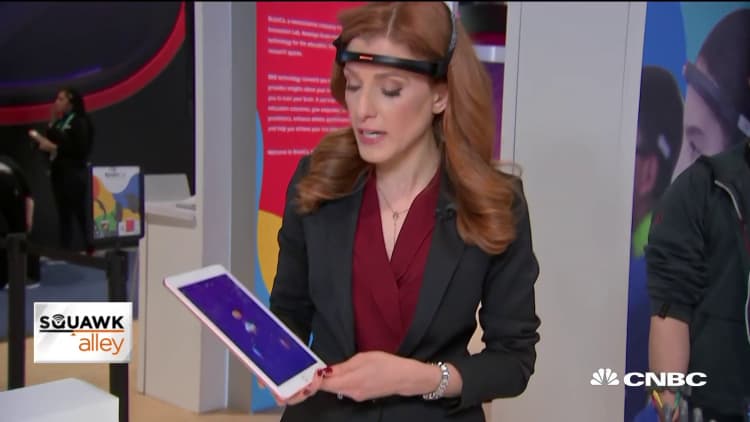At last year's CES tech trade show in Las Vegas, Apple attracted a lot of attention because of a large well-placed billboard ad that read, "What happens on your iPhone, stays on your iPhone."
This year, Apple made its first official appearance at the conference in years and was forced to defend that position. Jane Horvath, Apple's senior director, was on a panel on Tuesday alongside representatives from Facebook, Procter & Gamble and the Federal Trade Commission, and was asked about the company's use of encryption.
Apple has long taken a controversial position on encrypting its devices, arguing that it has limited ability to help law enforcement crack into devices during criminal investigations. On Monday, the FBI sent a letter to Apple requesting assistance extracting data from password-protected iPhones used by Mohammed Saeed Alshamrani, who is suspected of killing three people last month in a shooting at a Navy base in Pensacola, Florida.
Horvath reiterated Apple's view that to protect customer data, if a phone is stolen or gets left in a cab, and ensure consumer trust, the company has designed its devices so that it can't access highly personal information. Apple says that, for locked phones, in order to retrieve data that hasn't been uploaded to the company's servers, it would have to build special software.
"Our phones are relatively small and they get lost and stolen," Horvath said. "If we're going to be able to rely on our health data and finance data on our devices, we need to make sure that if you misplace that device, you're not losing your sensitive data."
Horvath said that Apple has a team working around the clock to respond to requests from law enforcement. But she said she doesn't support building so-called back doors into software that would allow law enforcement elevated access to private data to solve crimes like terrorism.
"Building back doors into encryption is not the way we are going to solve those issues," Horvath said.
Apple's most high profile showdown with law enforcement came in 2016, when the Justice Department sued the company in an effort to get it to help obtain data from the phone of Syed Farook, who was responsible for the mass shooting in San Bernadino, California, which left 14 people dead. The FBI eventually said that it was able to gain access to the phone using a private vendor.
An Apple spokesperson told CNBC on Tuesday, in response to an inquiry about the recent Alshamrani case, that the company is working with authorities.
"We have the greatest respect for law enforcement and have always worked cooperatively to help in their investigations," the spokesperson said in an email. "When the FBI requested information from us relating to this case a month ago we gave them all of the data in our possession and we will continue to support them with the data we have available."
Tuesday's panel also included Erin Egan, Facebook's vice president for public policy, P&G global privacy officer Susan Shook and FTC Commissioner Rebecca Slaughter. Facebook also faces government pressure to build back doors into its software.
WATCH: CES highlights tech meant to be controlled with your mind



